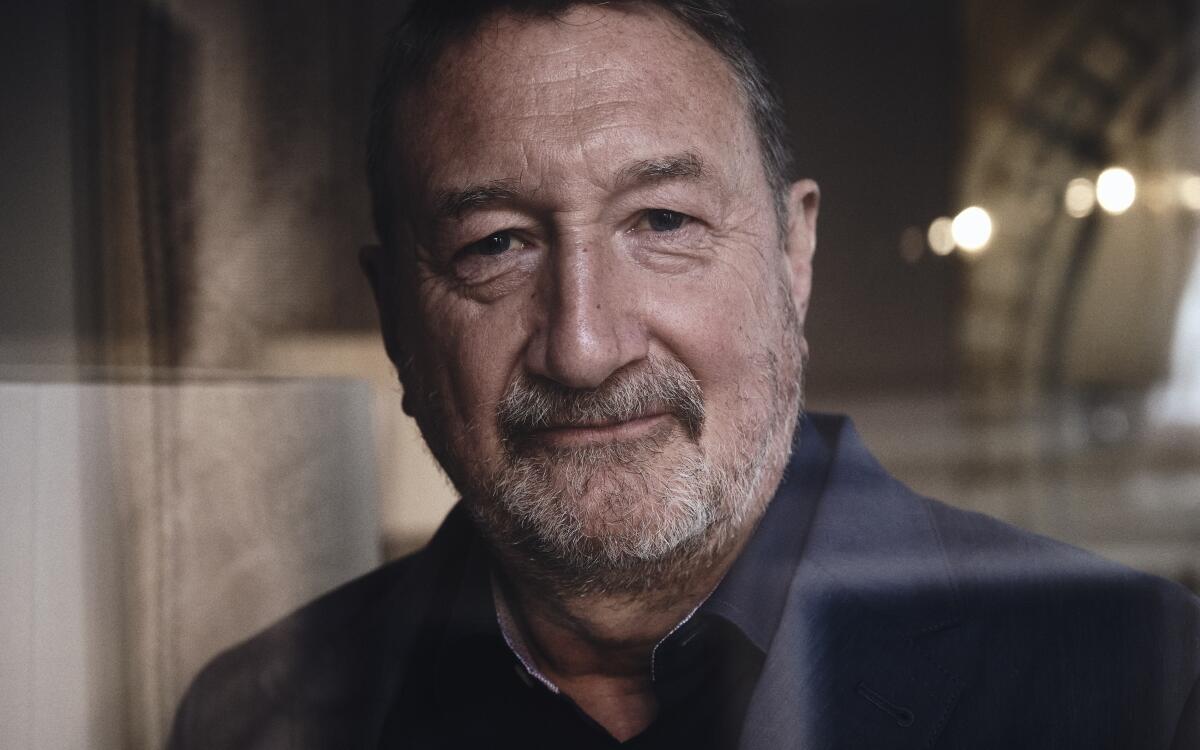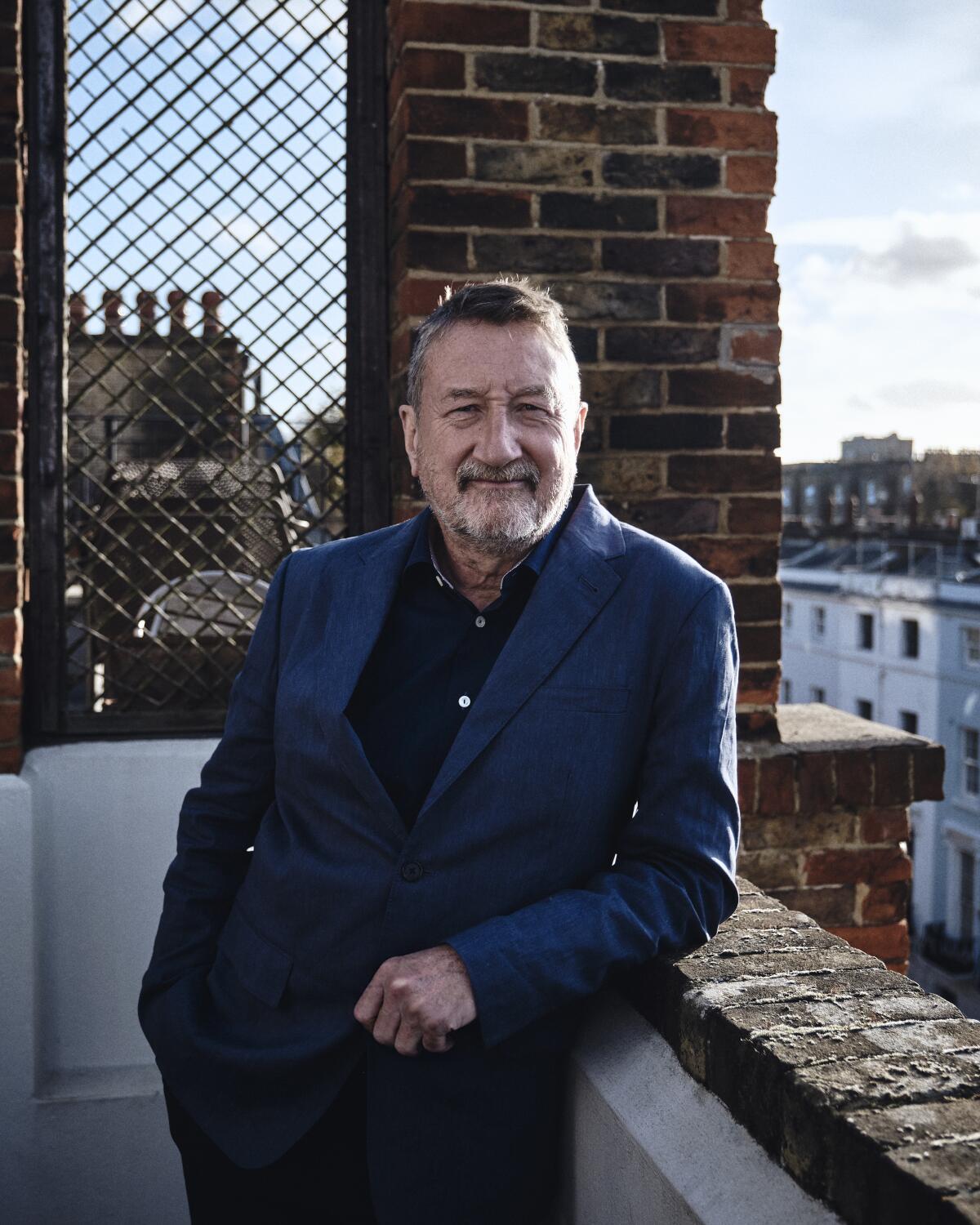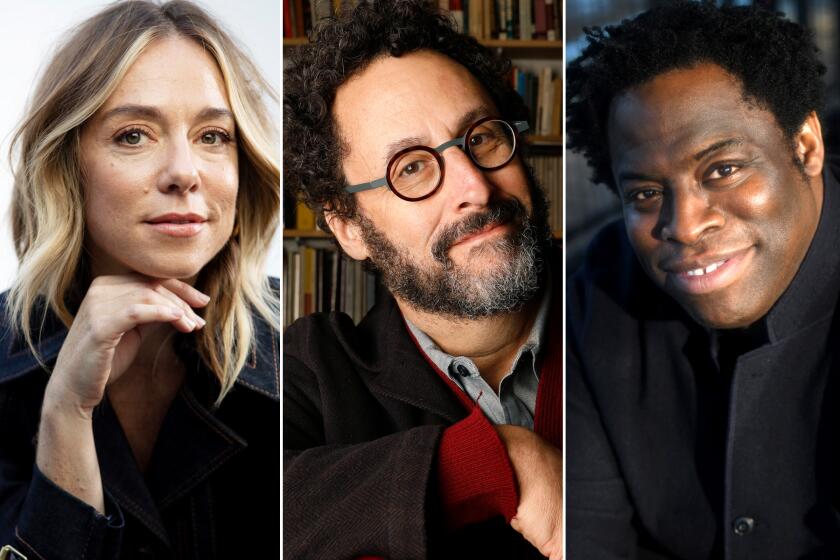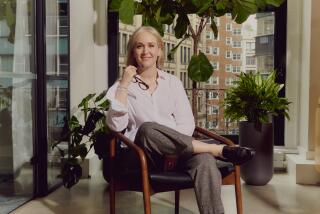Writing ‘Spencer’ as a non-biopic? A foolish choice perhaps, but one that worked

I got a message that Pablo Larraín was in London and wanted to meet. You don’t think too long and hard about such an invitation and we were having breakfast in the Covent Garden Hotel within a few days. Something about that hotel chain, which includes the Soho Hotel, works for me. My first meeting to discuss “Locke” was in the Soho. My first meeting to discuss “Peaky Blinders” was in the Covent Garden. I consider both projects successful and I’m superstitious. I touch wood instead of going to the doctor. I thought meeting at the Covent Garden was a good start.
Even better, Pablo is cool and is a genius. He is also serious and mostly right about things, whereas I am light-hearted and often wrong. He said he wanted to make a very different kind of movie about Diana. I said, “Oh, OK,” denoting uncertainty. Then I thought, “Wait a minute, I remember something.”
On the day of Diana’s funeral, I was working in Canada and watched the early-morning coverage as the funeral cortege emerged from behind dark gates. The whole event was a testament to how the British establishment has an inexplicable ability to find your soul through pageant. I heard British people sobbing and wailing, something they never did. I found myself getting emotional in the hotel room, late for a first day of something.
In their own words: Tony Kushner, Rebecca Hall, Jeymes Samuel and other screenwriters take us on a journey through writing their film scripts.
I never explained to myself what it was that happened with Diana. How did she have that connection to people? So you have an unanswered question and Pablo Larraín across the table and breakfast is over already and you’ve said you will do it. So now what?
All the things one shouldn’t do were pretty obvious to myself and to Pablo. You can’t tell a life story by telling the story of a life because a life gives you too much to do and also insists on the way you do it. We knew we didn’t want to approach our story as a traditional biopic.
Pablo has described his vision as “an upside-down fairy tale,” which became our blueprint. I like it when the thing you are doing is restricted in terms of time and space. People seem to think it makes your work more difficult but the secret is that it makes your life as a writer easier. There are so many things you can’t do, so many places you can’t go, so you concentrate on what is in front of you.
This freedom allowed for creative nuance to tell a story rooted in the Diana we all imagined we knew. More important, we wanted to turn the biopic inside out to explore what might have been her inner psychological and emotional life.
I managed to track down some people who knew Diana and, more crucially, who worked for her. The idea of setting this at Christmas came before I found out about a particular Christmas that was actually perfect for our purpose. Christmas Eve, Christmas Day, Boxing Day are your three acts, but one particular Christmas also involved a crucial decision being made. Sometimes you get lucky.
The staff told me first-hand stories and there is nothing finer than to let the madness and strangeness of reality onto the page. Everyone’s life, everyone’s family, everyone’s festive celebrations are touched by wild idiosyncrasies, and I was handed some in whole chunks. I had the stepping stones and now had to jump from one to the other, while incorporating our blueprint of exploring Diana’s inner world.

This was a project that wouldn’t leave me alone. At night, my head like a beehive on the pillow. Maybe that’s how her head was sometimes.
My writing technique is not a technique, it is more like watching your fingers go. I tend not to plan scenes or sequences too much and hope that what comes during the process makes some kind of sense.
When you turn this kind of thing in, you don’t know if anyone will like it. You get an idea if it’s any good from the first noise someone makes when you ask if they’ve read it. One noise means “it’s awful,” another means “it’s salvageable,” another means “it works.” I can’t spell those noises but I know them intimately.
Pablo made the third noise, which was a relief. The smart, smart people began to gather and when it couldn’t get any better we heard about Kristen Stewart.
It is a bit like an engine firing. This thing is starting. The whole endeavor was risky because of who Diana was and what has happened since, but it didn’t feel risky with so many grownups now taking part. Kristen went on a long journey and came back with our Diana.
My part of the process was solitary and dull to look at. The script was now in the hands of the conjurers, the magicians, the scientists and that is what people want to hear about.
But the pandemic was happening, the movie was moved to Germany and the set was closed. I watched rushes every day, and you writers will understand the leap you get in your heart when the words come home to your screen intact and unaltered, except now they are glittering and funny and perfectly expressed. Rushes can tell lies but you get a feeling quite early on. It’s going to be OK. The Times in the east and The Times in the west might speak kindly this time. And mostly they did.
Looking back, it could have been a disastrous decision to say yes over breakfast in the Covent Garden Hotel. I didn’t really think it through. But after watching the movie and seeing all the gorgeous work of everyone involved, I believe it was a correct foolish decision.
More to Read
From the Oscars to the Emmys.
Get the Envelope newsletter for exclusive awards season coverage, behind-the-scenes stories from the Envelope podcast and columnist Glenn Whipp’s must-read analysis.
You may occasionally receive promotional content from the Los Angeles Times.








